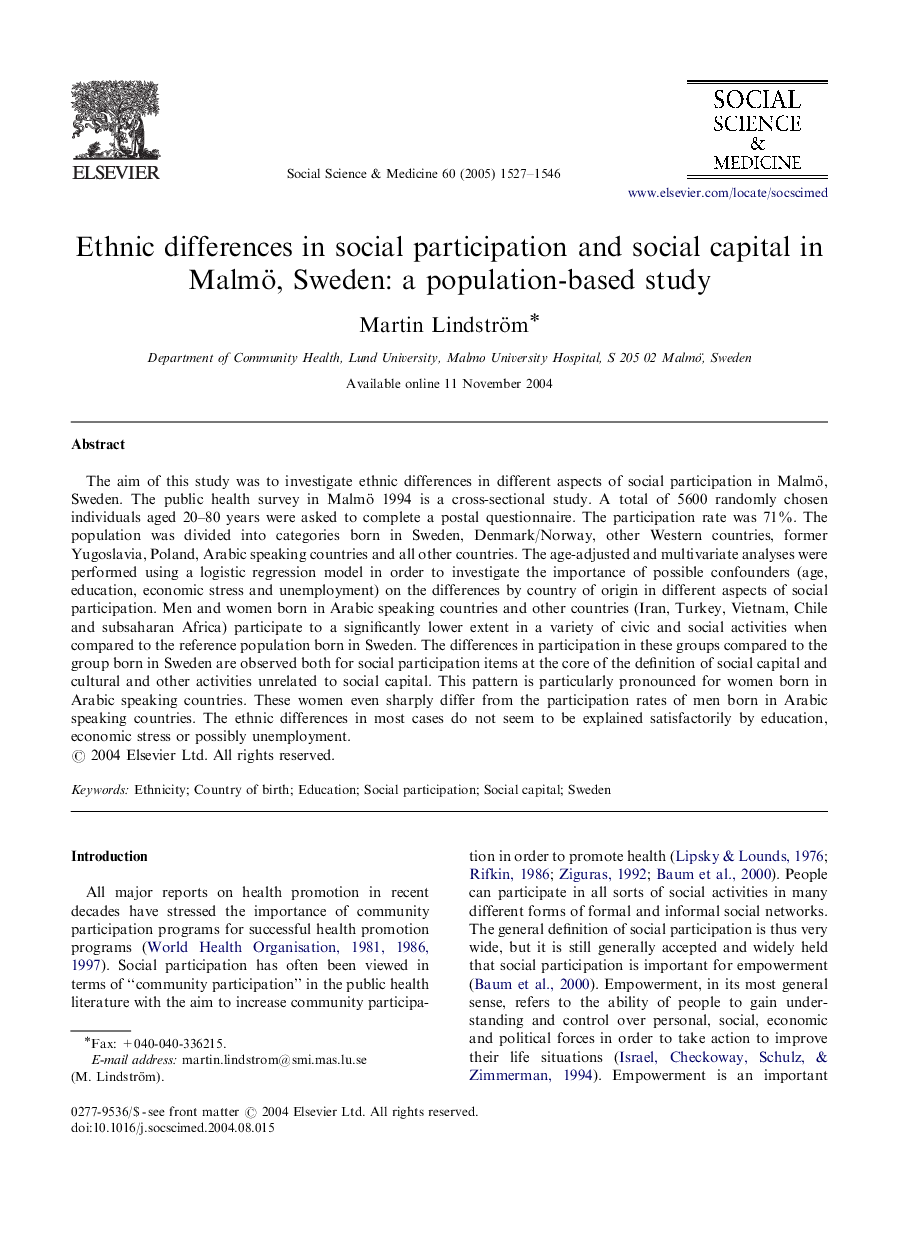| Article ID | Journal | Published Year | Pages | File Type |
|---|---|---|---|---|
| 10473267 | Social Science & Medicine | 2005 | 20 Pages |
Abstract
The aim of this study was to investigate ethnic differences in different aspects of social participation in Malmö, Sweden. The public health survey in Malmö 1994 is a cross-sectional study. A total of 5600 randomly chosen individuals aged 20-80 years were asked to complete a postal questionnaire. The participation rate was 71%. The population was divided into categories born in Sweden, Denmark/Norway, other Western countries, former Yugoslavia, Poland, Arabic speaking countries and all other countries. The age-adjusted and multivariate analyses were performed using a logistic regression model in order to investigate the importance of possible confounders (age, education, economic stress and unemployment) on the differences by country of origin in different aspects of social participation. Men and women born in Arabic speaking countries and other countries (Iran, Turkey, Vietnam, Chile and subsaharan Africa) participate to a significantly lower extent in a variety of civic and social activities when compared to the reference population born in Sweden. The differences in participation in these groups compared to the group born in Sweden are observed both for social participation items at the core of the definition of social capital and cultural and other activities unrelated to social capital. This pattern is particularly pronounced for women born in Arabic speaking countries. These women even sharply differ from the participation rates of men born in Arabic speaking countries. The ethnic differences in most cases do not seem to be explained satisfactorily by education, economic stress or possibly unemployment.
Related Topics
Health Sciences
Medicine and Dentistry
Public Health and Health Policy
Authors
Martin Lindström,
